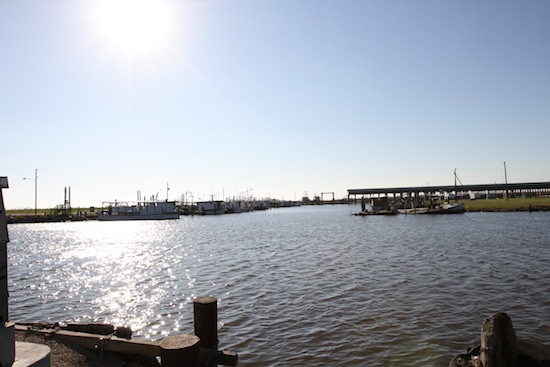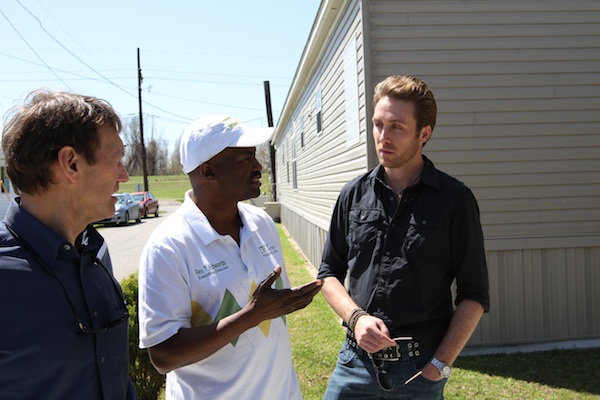
At 8 a.m. the sun was already strong as I walked towards the small marina store in Pointe a la Hache harbor. Rebuilt after Hurricane Katrina and again after Hurricane Gustav in 2008, the building already looked worn... as if the worries and stress of the last year have taken a toll on it as much as they have on the people in this small community in southern Louisiana.

I walked into the store and was greeted by a friendly smile from Lynette, a local who has lived here all her life. It wasn't long before she was sharing the hardship that still plagues this region ever since the BP oil spill almost a year ago. Normally, at this time of year, the marina would be bustling with activity at the height of the oyster season with 50 boats working daily in what are some of the richest oyster beds in the country. This year, only three lonely boats manage to make a living thanks to the impact of that disaster.
After being away from the Gulf for several months I had come down with a team from Ocean Conservancy to find out what was happening almost a year later. Unfortunately, Lynette's story confirmed my fears -- that just because the oil was largely out of sight and for many out of mind, it was still wreaking havoc on the environment and the people whose lives depend on it.
Upon leaving the marina we met up with Reverend Tyronne Edwards, a local leader who has fought tirelessly for the restoration of the communities in the area for decades. He greeted us at the community center and showed us around. He explained how the community had recently rebuilt the center not wanting to wait for the government, but taking matters into their own hands and finding a solution to their problems.

As we toured the town it was clear that while they had achieved a lot, there is more to it. The reverend recognizes that the key to long-term sustainability of the community is to build a new relationship with the environment, and in so doing diversify the economy. With the potential of billions of dollars flowing into the Gulf from the fines that BP will have to pay, there is a realization that, if done right, the money could support the training and employment of local communities to restore the environment for the long-term. Rebuilding oyster reefs, replanting and expanding the perpetually shrinking marsh ecosystem or working to restore fisheries are all potential projects that could start to build a sustainable economic model.
Almost one year on from the BP oil spill, there is no question that local communities are still struggling with the realities of that disaster. An emerging opportunity to create a restoration economy and engage local communities in redefining their relationship with the environment by actively taking part in its long-term restoration offers tremendous hope.
The good news is that this idea is already working in some communities who are taking matters and the future into their own hands. This weekend, a coalition of local and national organizations continues one of the first Gulf restoration projects in Alabama with the 100-1000: Restore Coastal Alabama partnership (www.100-1000.org). Alabama Coastal Foundation, Mobile Baykeeper, The Nature Conservancy and The Ocean Foundation are leading a growing number of local businesses and organizations who are restoring Alabama's critical marsh lands and oyster habitats one mile at a time. The challenge is to cut through red tape and old ways of doing business to expand this model.
I will be spending a good deal more time in the Gulf in the coming months and years, and every trip I make reminds me any environmental tragedy is also a human tragedy.
Hope for the future, however, could lie in a compelling question: Could a restoration economy in the Gulf be the first steps towards a new approach to balancing our energy needs and a building a sustainable relationship with our natural resources?
Explorer and social entrepreneur, Philippe Cousteau, Jr., is the grandson of legendary explorer Jacques-Yves Cousteau and the CEO of EarthEcho International. He is also the host of CNN International's Going Green series.
